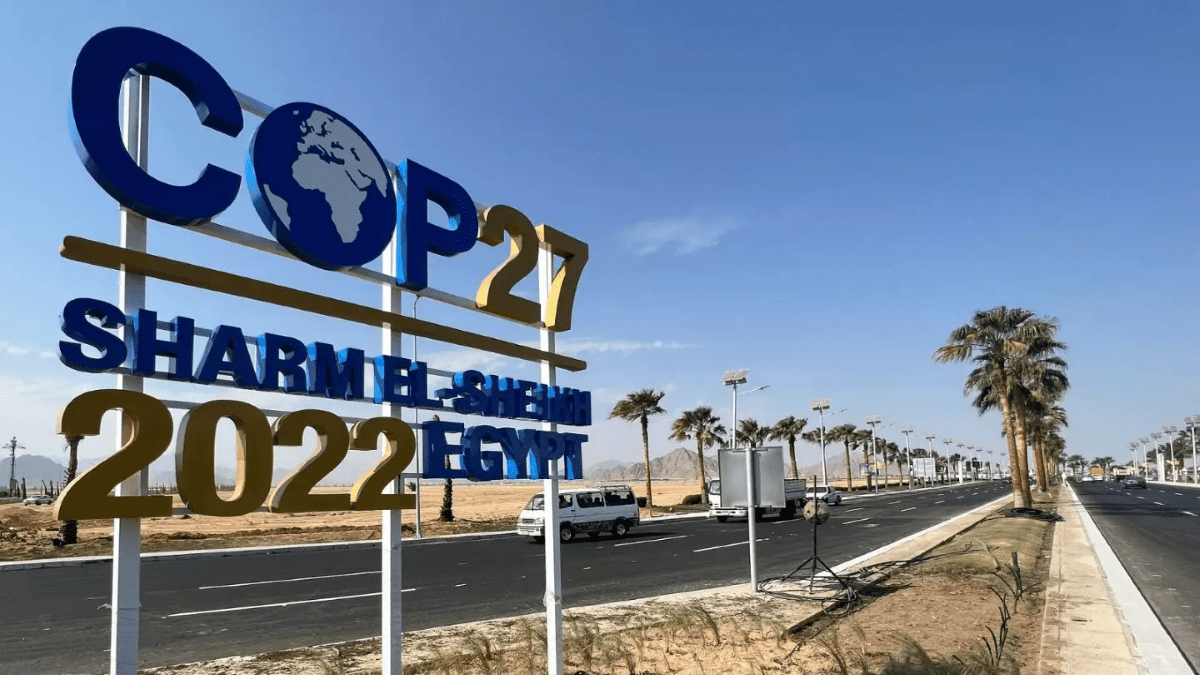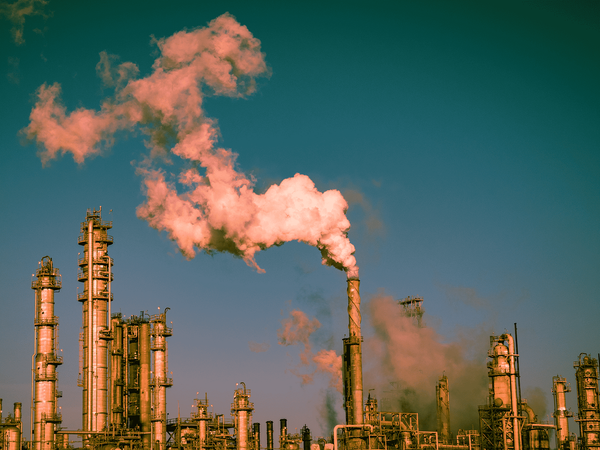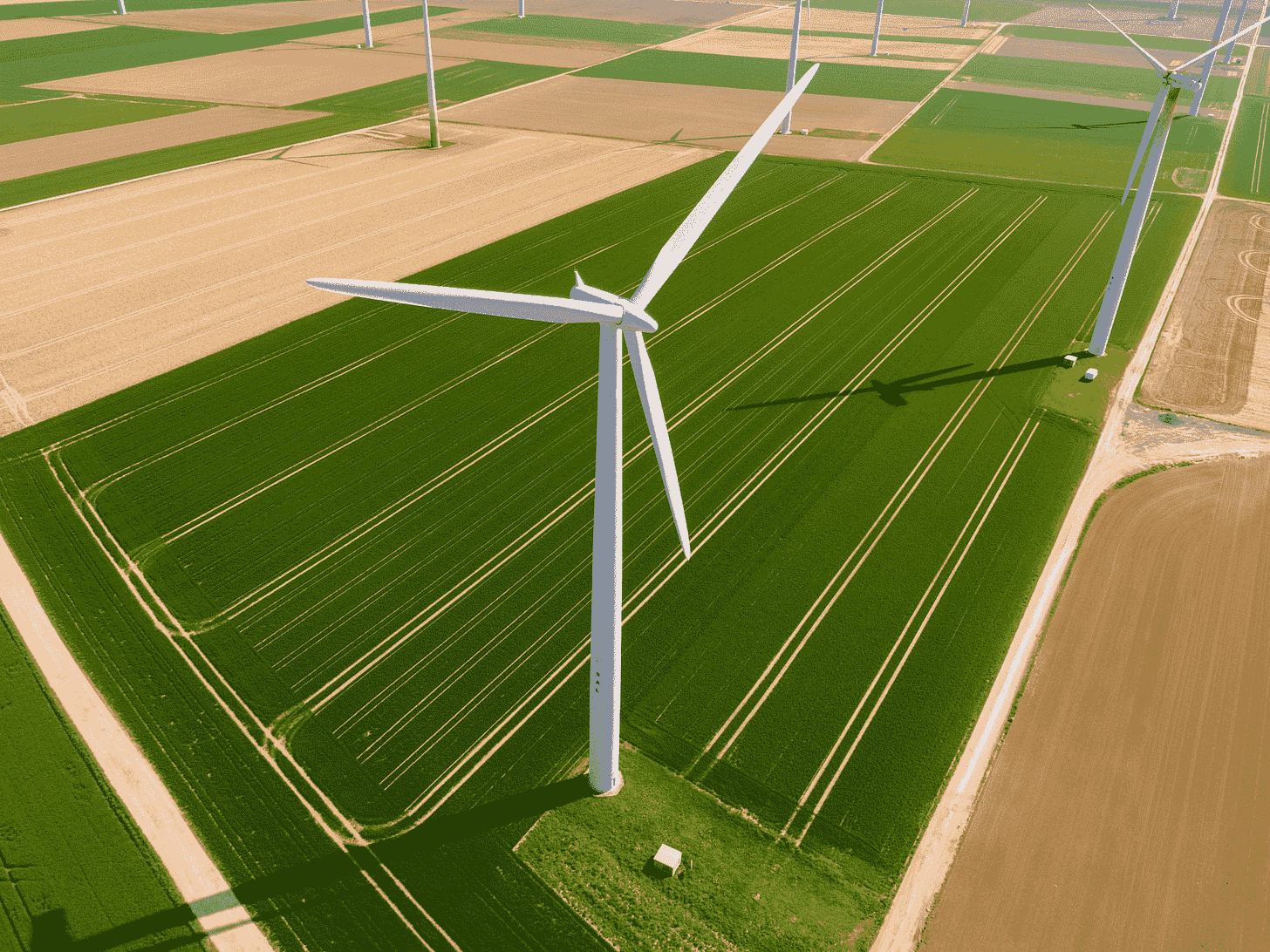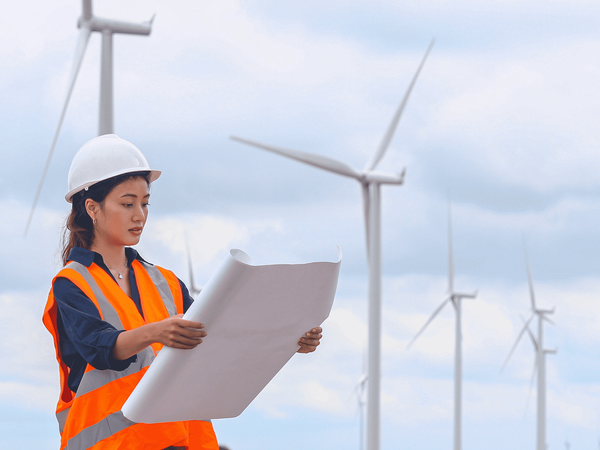Oil industry presence at COP27 concerns critics

For 14 days, about 35,000 people, representing nearly 200 countries, attended the COP27 summit in Sharm el-Sheikh to discuss the ways to keep 1.5°C alive by undertaking sustainable cuts in greenhouse gases.
Last year at COP26, countries agreed to prepare more ambitious targets before coming to Egypt, but only 29 countries turned up with new plans. From the first COP in Berlin in 1995 to Egypt this year, emissions have continued and must be slowed down if we want to avoid the worst consequences. The COP27 global climate summit in Egypt was seen as a crucial step to bring climate change under control, but many considered it to be one of the worst COPs.
The summit started with the leaders giving speeches on the status of the climate crisis. If global average temperatures were to rise to more than 1.5°C, the UN says it would expose millions more people to potentially devastating climate impacts. The average temperature is now 1.1°C above pre-industrial levels.
During the second week of the summit, China's President Xi Jinping and US President Joe Biden met in Indonesia for the G20 and agreed to resume cooperation on climate change after a months-long hiatus due to tensions over Taiwan.
Read: COP27: What to expect?
What did the leaders say?
Ukraine President Zelenskiy gave a video talk at COP27 and emphasized that to tackle climate change, we need to end the war in Ukraine because the war is a problem for the whole world. The climate policy is not effective without peace.
The US President Joe Biden pledged funding to countries devastated by climate change using carbon offsets. He also promised a crackdown on methane emissions and tighten rules on methane emissions from oil and gas companies. However, critics say the president only makes new promises, and the old promises have not even been fulfilled.
The UK PM Rishi Sunak said he is committed to the £11.6 billion international climate fund that was pledged by the government last year, but it could take longer than five years.
French President Emmanuel Macron called for the concept of financial solidarity, before committing to $100 billion a year to help less wealthy nations in adapting to climate change. He welcomed the plans to reduce emissions by 55% by 2030, but asked it should be based on "energy sobriety" — the accelerated development of renewable energies and the transition from fossil fuels and nuclear energy.
The Scottish first minister Nicola Sturgeon urged countries in the developed world to recognize their responsibility to those nations already feeling the impact of climate change and help them with the loss and damage.
Brazil's president-elect Luiz Ignacio Lula da Silva, after succeeding Jair Bolsonaro, attended the summit and became instantly popular as he promised zero deforestation on Amazon by 2030. Mr. Bolsonaro was heavily criticized for his backing of agriculture and mining, which led to deforestation on the Amazon.
Read: What is Carbon Offsetting?
Major outcome
- Loss and Damage: The summit will be remembered as a new hope in funding countries, most affected by climate change. The loss and damage fund has always been about solidarity than money, to make sure no one is left behind to fight alone. A report by 55 vulnerable countries estimated $525 billion for their combined losses due to climate over the last two decades. For years, the negotiation was going back and forward on who should pay for climate change. Of course, the COP27 decision on loss and damage won't happen immediately, and it will take some time to fix the problem. Who will pay, and how much, is still uncertain.
- Low Emission and Renewable Energy: Activists and critics were disappointed with the fact that Coca-Cola, the world’s biggest plastic polluter, was on board as a sponsor, and more than 600 fossil fuel representatives were in attendance. Many saw it as the representatives were there to prevent new actions than promote progress and action. There was also a sharp U-turn in the language around fossil fuels represents— that is seen as a real step backward in the fight against rising temperatures, as the new term ‘Low Emission’ was added to renewable energy. Low emission in this case means natural gas.
- Phase Down the use of Coal: Rich nations showed a deeper sense of solidarity to phase down the use of coal and keep the ambition of 1.5°C alive. However, their efforts last year don't match their promises. Since the energy crisis, the majority of the countries have only turned to re-operating or thinking of building coal plants. The EU and many other countries, backed the agreement, but many used the COP27 to promote new oil and gas initiatives in their countries. Senegal and South Africa want to use their natural gas resources whilst Tuvalu and Vanatu signed the international Fossil Fuel Non-proliferation Treaty.
- Land and Ocean Conservation ("30x30"): The most high-profile agreement at COP27 was an agreement to conserve 30% of the planet's land and ocean by 2030. It is an ambitious goal and achieving it will be a challenge because, at the end of the day, there is always the matter of funding. During the summit, 112 nations showed interest, but it will take some time to make the final agreement and negotiation.
Read: EU's Emergency Meeting To Discuss Energy Crisis
It was clear from the beginning that expectations were low from COP27. With war, inflation, and the energy crisis, climate change was not even a priority for many nations. It was one of those summits that you must attend even though you have nothing progressive to talk about. The delegates came, spoke about how important it is to fight climate change, and posed for a nice 'climate-friendly' family photo. That's it. That battle will continue at COP28 in Dubai.
Summary
- The COP27 happened from 6-18 November in Sharm el-Sheik, Egypt
- Nearly 200 countries talked about limiting the average temperature rise to 1.5°C
- Many oil and gas industry representatives attended the summit
- Critics believe the COP27 did not reach the milestone of cutting the emissions
- With current policies, the temperature rise is expected to reach about 2.7°C



